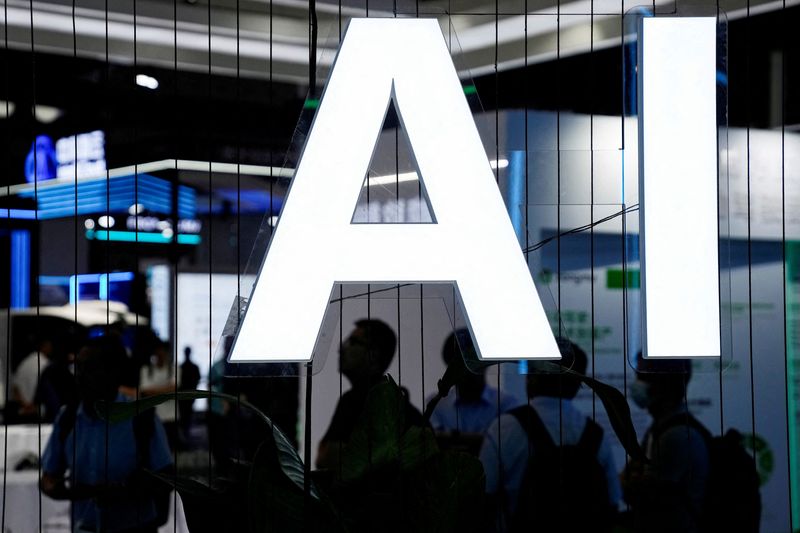Investing.com — The AI revolution of enterprise software is transforming business operations, with companies increasingly positioning themselves to benefit from this trend.
In a recent note, Truist Securities analysts highlighted that companies are integrating AI technologies into their software stacks to improve productivity, data management and cybersecurity. Central to this shift is the growing influence of generative AI (GenAI), which is expected to impact both the infrastructure and application layers of enterprise software.
According to the report, companies fall into two main categories when it comes to benefiting from AI: those that directly capture AI workloads and those that use the technology to improve their products.
Microsoft Corporation (NASDAQ:), MongoDB (NASDAQ:) and Snowflake Inc (NYSE:) are cited as key players expected to benefit from AI workloads, largely due to their data infrastructure capabilities and partnerships with leading AI providers.
Despite recent market challenges, Snowflake is seen as a potential long-term winner as its data warehousing is increasingly recognized as a core technology for AI initiatives. MongoDB is also well positioned, especially with its vector storage and search capabilities that are crucial for AI applications.
In application software, Truist Securities highlights potential winners in three key areas: pick and shovel plays, core platform vendors taking advantage of upgrade cycles, and vendors embedding AI to improve productivity. Companies like Salesforce Inc (NYSE:) and Smartsheet Inc (NYSE:) are expected to capitalize on these trends as companies increasingly turn to AI-powered solutions to streamline workflows and improve efficiency.
Meanwhile, companies like Palo Alto Networks Inc (NASDAQ:), CrowdStrike Holdings Inc (NASDAQ:) and Datadog Inc (NASDAQ:) are seeing themselves using AI to improve their product offerings, especially in cybersecurity.
Truist notes that Palo Alto Networks has already demonstrated significant AI-driven revenue growth, with annual recurring revenue from its AI products exceeding $200 million. As AI adoption increases, the demand for AI-enhanced security tools is expected to increase, expanding the market for companies in this field.
As investment in AI continues to grow, Truist Securities notes that the timeline for realizing significant value from AI has been extended. Initially expected for 2024, many companies now expect AI-driven applications to gain traction in 2025. Despite this slowdown, more than 70% of companies surveyed expect to allocate 5% or more of their 2024 software budgets to AI initiatives, underscoring the continued commitment to AI. investment.
Generative AI, while receiving a lot of attention, is expected to represent only a small portion of the broader AI market. Truist Securities predicts that by 2027, generative AI will account for less than 10% of the estimated $900 billion AI market. This suggests that while the focus on generative AI is significant, other areas – such as data management, cybersecurity and infrastructure – will offer more substantial opportunities in the longer term.
A key challenge highlighted in the report is the shortage of skilled talent and resources to effectively implement AI projects. This, coupled with increasing regulatory scrutiny around AI governance and compliance, could pose hurdles to widespread AI adoption in the enterprise space.


